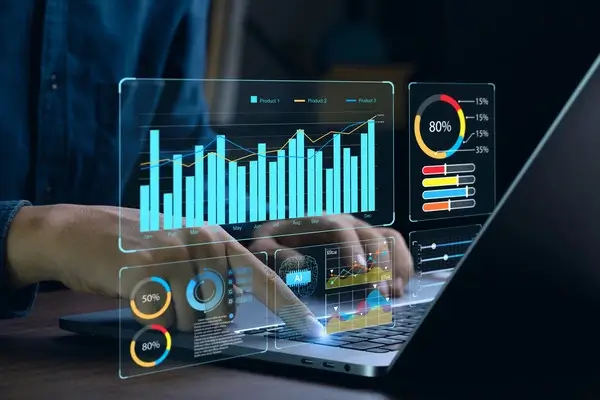As digital marketers, we thrive on data-driven insights and the ability to measure our efforts’ effectiveness. Google Analytics is an invaluable tool that provides an abundance of information about our website’s performance. Among its many features, understanding goal types is critical to unlocking its full potential. Here, we’ll explore the various goal types in Google Analytics and how they can help small and medium sized businesses achieve their objectives.
Destination Goals
Destination goals are ideal for tracking conversions when a visitor reaches a specific page on the website. Whether it’s a “Thank You” page after a successful purchase or a subscription confirmation page, setting up destination goals allows you to measure the completion of crucial actions. By analyzing the conversion rate and the path leading to these goals, you can optimize the website to boost user experience and conversions.
Duration Goals
Do you want to measure how engaged the website visitors are? Duration goals enable you to track the time duration a user spends on the website. This goal type is particularly useful for content-driven websites or blogs where you want to ensure that visitors are spending a good amount of time on your content. By setting realistic duration goals, you can identify areas where users may be leaving too quickly and work on improving their experience.
Pages/Screens per Session Goals
When the website offers various sections or features, it’s essential to gauge user interaction. Pages/screens per session goals help you measure the number of pages a user sights during a single session. By analyzing this metric, you can understand which sections of the website attract the most interest and which may need improvement. Enhancing navigation, optimizing content, or showcasing related products can all contribute to increasing the average number of pages viewed per session.
Event Goals
Events are user interactions that are not necessarily tied to page views, such as video plays, form submissions, or downloads. Event goals allow you to measure specific actions that visitors take on the website. Whether it’s tracking the number of video plays or the number of downloads, event goals provide valuable insights into user engagement with your content. By optimizing your events, you can better understand what resonates with the audience and tailor your strategies accordingly.
Conclusion
In the realm of digital marketing, achieving specific goals is paramount to success. By utilizing the various goal types in Google Analytics, you can gain invaluable insights into user behavior and optimize your strategies for better performance. Whether it’s tracking conversions, enhancing engagement, or analyzing user interactions, Google Analytics empowers you to make data-driven decisions that can transform your business.
Remember, understanding goal types is just the beginning. Continuous monitoring, analysis, and refinement are key to staying ahead in the ever-evolving digital landscape. So, dive into the world of Google Analytics, unlock its power, and propel your digital marketing agency and your clients’ businesses toward unparalleled success.
For comprehensive white label digital marketing services, including SEO, web development, PPC, content writing, and web design, trust vSplash. We cater to digital marketing agencies in the US, UK, Canada, Australia, and other English-speaking markets.
